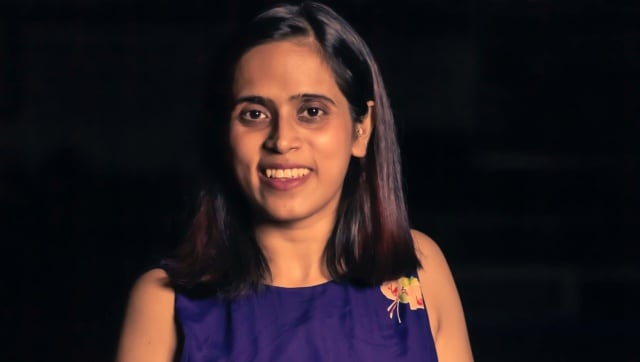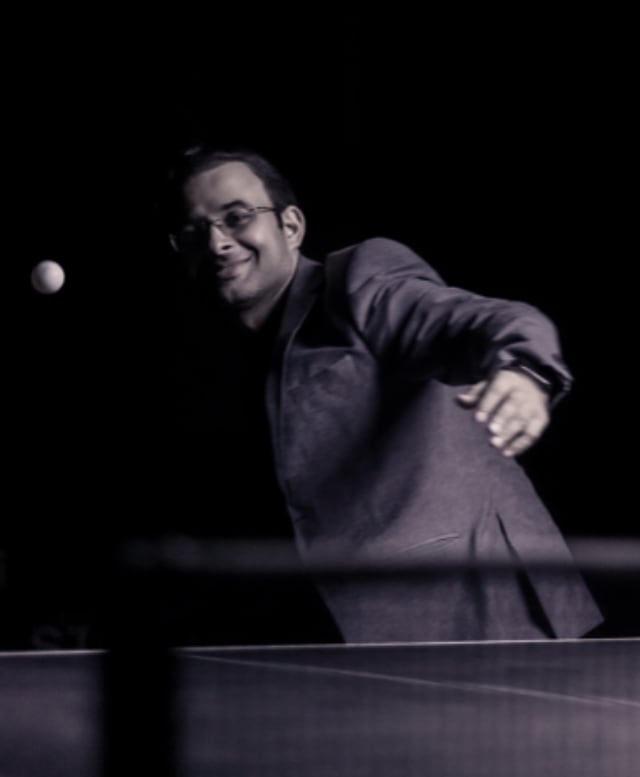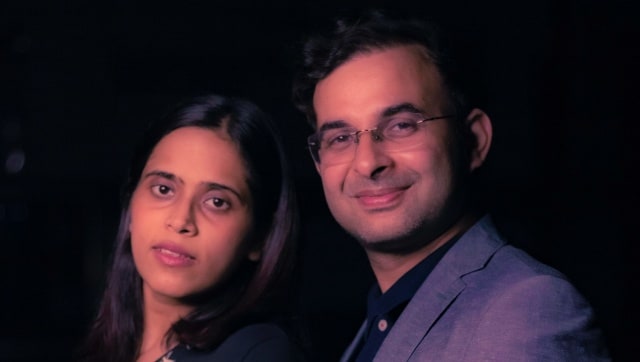Table Tennis finally embraces technology and AI to grow sport, improve players
“It’s about getting things down to one number. Using the stats the way we read them, we’ll find value in players that no one else can see,” says Peter Brand, played by Jonah Hill, in the 2011 Hollywood film Moneyball. The movie, based on a true story, relies on computer-generated analysis to acquire players instead of the age-old approach of depending on scouts and coaches.
The crux of it is to make decisions based on numbers, on empirical data, not pure observation. During the 2010s, former India table tennis coach Deepak Gambhir watched the movie and loved the perspective it offered. However, with the sport not embracing sports analytics as much as football, cricket, baseball, basketball, etc., he had to stick to the age old strategy of watching wards play and guide.
Except it wasn’t translating into results. Youngsters continued to make mistakes and matches continued to go in the wrong direction. Deepak understood the importance of data and would manually dissect strokes with the help of Excel sheets.
Related Articles

Explained: The debate in the United States over regulating AI

Why ‘atmanirbharta’ in aviation is the highest dividend of indigenisation
Things changed when his techie wife Megha – with consultancy stints at HCL, Cognizant, PepsiCo and Ernst & Young – came into the picture and brought along an Artificial Intelligence model to offer a solution. Suddenly, they knew what to do differently.
In 2018-19, they did a deep dive and proof of concept on using technology and analytics to improve how players played the way they played. In 2020, they set up Stupa Sports Analytics in Delhi with the entity now offering commercial solutions. All it needed was the app on a mobile phone and a camera on said phone. You were now looking at how performance enhancement solutions for players and by extension for the coaches through artificial intelligence.
“Many sports are realising the involvement of tech. Table tennis is one of them, wherein this (sports analytics) has not been considered very seriously and a lot of traditional coaching, traditional ecosystem is being followed which is now changing. I feel this is a time now where a lot of things are moving towards digitization. These sports are realising the value of digitisation and the rights, the content and the IPs and they’re taking the next step as well,” said Stupa’s CEO Megha on what kept table tennis behind in embracing technology.
The company’s focus has now shifted from a B2C perspective to B2B where they’ve started tournament management, streaming media management and added a layer of AI for data analytics. The company identifies itself as a B2B SaaS for racket sports with the aim of going from table tennis to badminton, squash and paddle in the future.

What does the B2C SaaS model entail? The company has identified tournament management as a major hiccup that is still using primitive tools. “There are no tech layers for tournament organisers, clubs, players or fans to have a good experience. If I take an example of TTFI (Table Tennis Federation of India) or any Indian federation, they’re taking entries through emails which are then maintaining them in Excel which is a very, very inefficient way of management things” says Megha.
“This is not just about India but we’ve not noticed it in Sweden, Norway and Brazil as well. All of them have similar issues in that they don’t have the right tools for memberships, player participations, licenses and give a seamless experience with fixtures, results, draw creation, result and data management.”
“Another challenge is the media management. So we’ve created an aggregated platform for memberships, licenses, registration, participation fee and then creating a seamless experience of conducting tournaments, draw creation, result management, data management, live scoring and then taking them to streaming and production on the same platform.”
She then highlighted their AI as their USP which helps in video analysis, media highlights which are conducive for social media coupled with graphics and performance analytics for players.
The federations and players have slowly but gradually embraced the technology. The company now boasts of 11,000-plus players, 40-plus world ranked players and an association with 226-plus federations. The company claims 25 percent of the Olympians at the 2020 Tokyo Olympics were its users.
With its evolved B2B SaaS model and TV broadcast solution, Stupa has formed newer alliances beyond its association with ITTF and member nations. They’re now working with federations in Sweden, Norway, Brazil, Germany to name a few.

For Stupa and its founders Megha and Deepak, it has been a journey with a lot of learning. In the three years, they’ve shifted focus from primarily player analysis to technology aimed at fan engagement with the broadcast at the heart of it.
“It is something very similar to what you see as a HawkEye in cricket, wherein just after a four or six or a wicket, you see plenty of ball trajectories and heatmaps on the pitch. Similarly, we have started offering it as a realtime TV broadcast solution such as heatmaps on the table, forehands, backhands, etc. It was used during the Singapore Smash, during WTT Goa,” says Megha.
The challenge for the company extends beyond finding takers for its technology. It also exists in educating the ones that already have it.
“At times, not every stat makes sense. However, if it is explained in terms of it being a trend, a pattern, suddenly that stat starts to make sense. For example, a heatmap shows where is the shot being played, how many forehands, how many backhands etc. If you see a stat over a season, a game, it may start to make sense. Also, it is important to narrate a story out of such scenarios. To achieve that, we have a dedicated team which collates and collects the information and then passes it on to the players, coaches and commentators.”
“Elsewhere, we did mentoring sessions with coaches in association with ITTF and now we have plans with TOPS (Target Olympic Podium Scheme) and SAI (Sports Authority of India) as well to explain how sports analytics can be consumed.”
Even as the company looks at the B2B model for monetisation and scaling, an option for individual players to further their game will be rolled out in the future. Labelled ‘Virtual Coach,’ the Stupa Analytics team visualises it as a concept where players can upload footage of their game and get auto guide and auto suggestions with the use of AI.
There’s plenty in the pipeline for the company and the roadmap is lengthy, explains Megha. The focus will also shift to other sports having built credibility with table tennis.
“We want to expand vertically into other sports such as badminton, paddle and we have received requests from squash. These would be the immediate sports which we will be picking up and doing the transfer learning and transferring our platform to accommodate such sports as well which I feel would be much faster being racquet sports as well. Badminton because Indian badminton market is quite huge and we see a lot of value for us adding in this.”
“Within table tennis, we want to go deeper with AI. There’s performance analytics but we want to get into virtual coaching, some VR experiences for players who want to practice for a particular style. So in VR, you can play against a World No 1 player and practice as per their styles.”
Stupa’s success and achievements become even more astounding considering they’ve only raised approximately a million dollars so far with shrewd choices in investors and partners. The next target is to raise three-to-five million dollars to expand in table tennis and take their offerings to other sports.
Read all the Latest News, Trending News, Cricket News, Bollywood News, India News and Entertainment News here. Follow us on Facebook, Twitter and Instagram.
For all the latest Sports News Click Here

